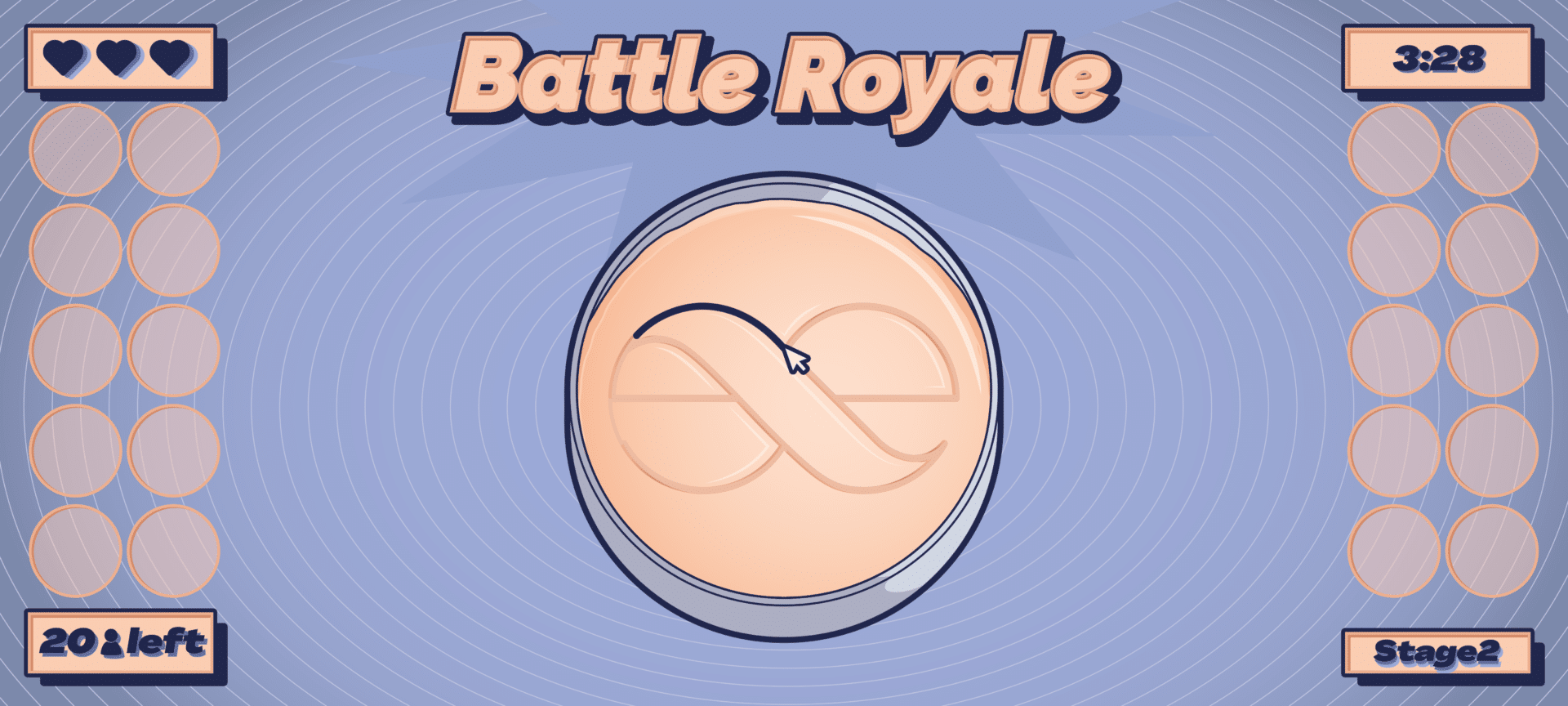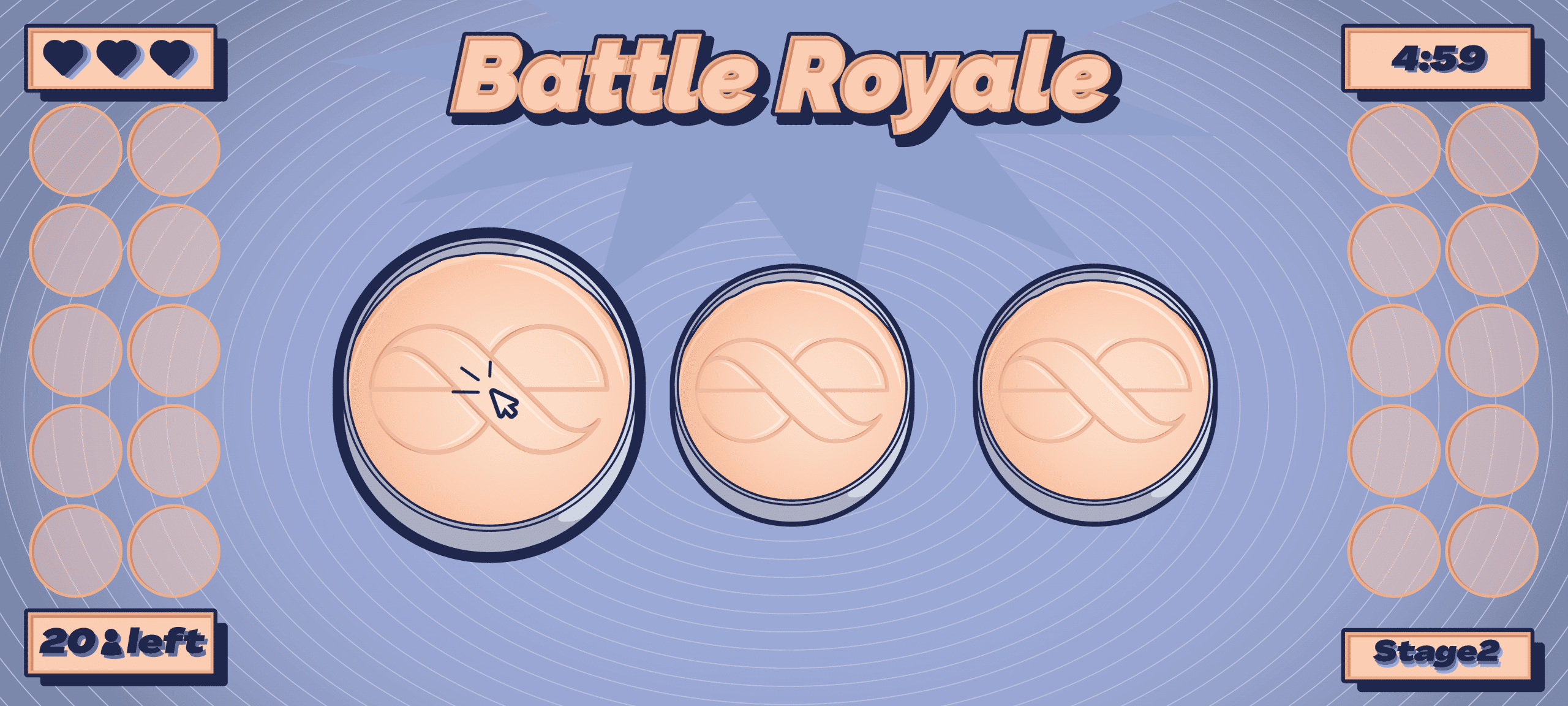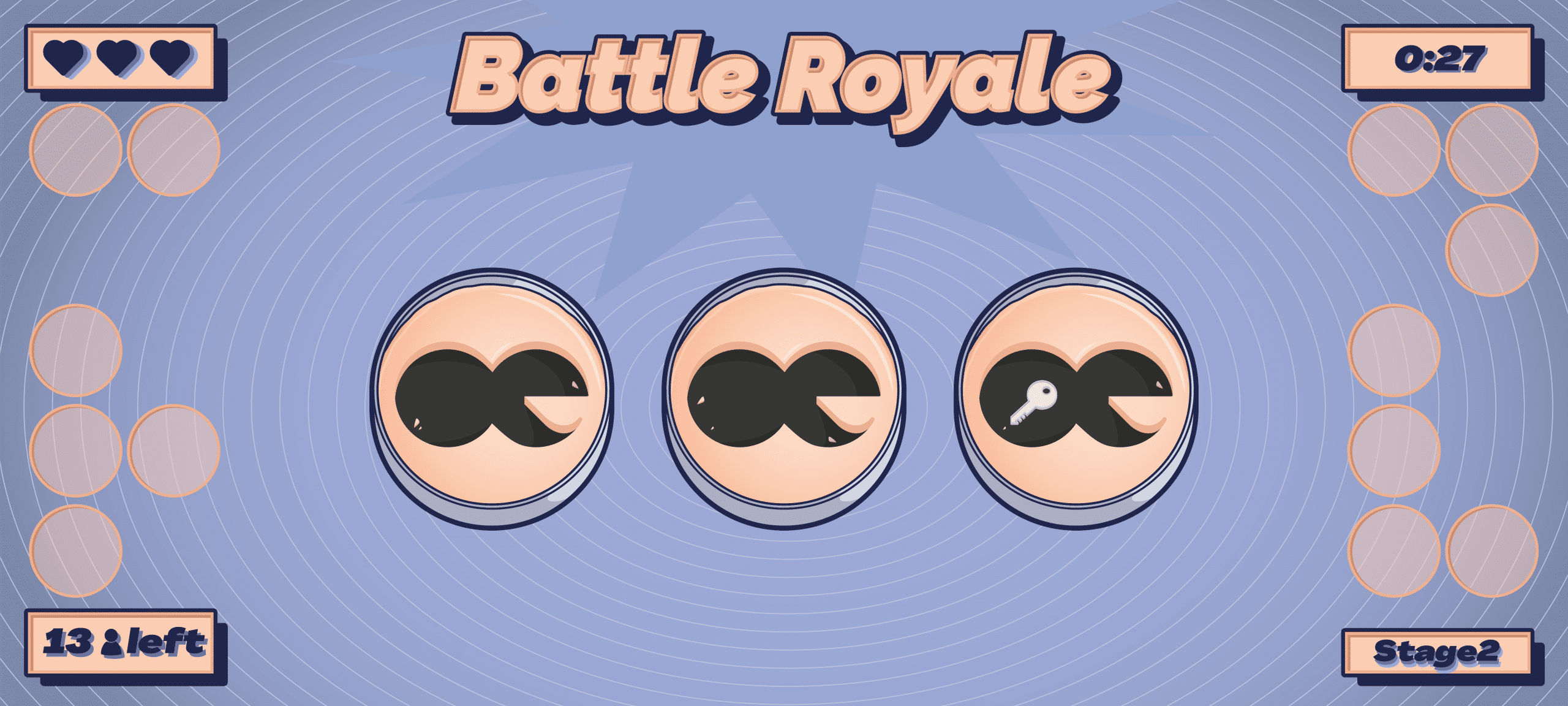
What Is a Squid Game Challenge? Create Your Own Squid Game Experience

What Is the Squid Game Format?
Squid Game format is a competitive, multi-level journey that pushes participants to their limits with brain-bending puzzles and time-sensitive tasks. Players advance by solving challenges within a strict time frame; there is no leaderboard but players are eliminated at every game, creating a thrilling experience that mirrors the high stakes of Squid Game with individual performance.
Creating Your Own Squid Game: A Step-by-Step Guide
One might be wondering, how can I create my own version of Squid Game? Below, we’ve outlined 10 essential steps to help you brainstorm what your digital challenge could look like:
- Choose the Number of Players
Start by deciding how many people will compete in your custom Squid Game.
– Small group (5-20 players): Perfect for a more intimate, controlled experience.
– Larger group (100-500 players): Ideal for a high-energy, intense competition.
- Pick the Number of Games
Decide how many challenges your players will face.
– 5 games: A balanced competition with a mix of difficulty levels.
– 7 games: A longer, more intense experience with more eliminations.
- Select the Types of Games
Choose the kind of challenges—physical, mental, or both.
– Strategy-focused: Puzzle-solving, escape rooms, or brain teasers.
– Physical endurance: Relay races, tug-of-war, or obstacle courses.
- Design Game Rules and Objectives
Make sure each game has clear instructions and goals.
– Red Light, Green Light twist: Players complete tasks while moving.
– Trivia challenge: Wrong answers lead to penalties or elimination.
- Set the Elimination Rules
Define how players will be eliminated at each stage.
– Last two players out in a maze are eliminated.
– Players must score above a certain threshold to advance.
- Add Unique Twists
Keep things interesting with surprises and advantages.
– Sabotage cards: Let players mess with their competition.
– Hidden immunity clues: Give an edge for the next round.
- Prepare the Setup and Materials
Plan what you’ll need for each game.
– Outdoor games: Use an open field with cones and markers.
– Indoor games: Set up a gym or indoor space for more controlled challenges.
- Create a Reward System
Decide how you’ll reward players.
– Grand prize: A cash prize or big reward for the winner.
– Consolation prizes: Small rewards for completing challenges.
- Test and Refine
Do a test run to work out any kinks.
– Trial run: Gather volunteers to make sure everything flows smoothly.
– Refine with feedback: Adjust timing, difficulty, or layout for improvement.
Squid Game Features That Can Be Added
1. Interactive Player Roles
- Introduce roles like “Saboteur” (secretly hinders others) or “Protector” (can save one player per round).
- Give players hidden objectives that align or conflict with others’ goals.
2. Dynamic Alliances
- Encourage players to form and break alliances through challenges that require teamwork but end with individual winners.
- Example: A team-based obstacle course followed by a solo trivia round.
3. Surprise Twists
- Add unexpected challenges or rule changes mid-game to keep players on edge.
- Example: Midway through a game, the rules flip, and players must avoid completing their tasks.
4. Reward Tiers and Power-Ups
- Offer small rewards or advantages for completing mini-challenges or hidden tasks in the Squid Game challenge.
- Example: Immunity badges or hints for upcoming games.
5. Audience Involvement
- Let spectators vote on game modifiers, such as increasing difficulty or granting advantages to specific players.
- Example: Viewers vote to reintroduce an eliminated player.
6. Risk-and-Reward Challenges
- Include opportunities where players can gamble points or privileges for higher stakes.
- Example: Players can skip a round but risk double elimination in the next one.
7. Evolving Game Themes
- Change the theme for every stage to surprise players and avoid monotony.
- Example: Start with a nostalgic childhood theme, then shift to futuristic or fantasy-inspired games.
8. Leaderboard and Progress Tracker
- Keep a visible ranking system that updates in real-time to motivate players to improve.
- Example: Show cumulative scores or survival streaks on a scoreboard.
9. Interactive Props and Environments
- Use physical setups that encourage exploration or puzzle-solving beyond the obvious.
- Example: A giant maze with clues hidden inside walls or objects.
10. Personalized Game Experiences
- Customize some challenges based on player preferences, strengths, or fears.
- Example: Players choose between a physical test or a mental puzzle at a branching point.
These features keep players engaged by making each stage of the game feel fresh and exciting!
10 Squid Game Challenge Ideas
1. Red Light, Green Light
- A stop-and-go mechanic where players must freeze when prompted or face elimination.
- Core Challenge: Timing and precision under pressure.
2. Tug-of-War
- Team-based strength and strategy game where groups pull against each other to avoid falling into a pit.
- Core Challenge: Balance of strength, teamwork, and technique.
3. Honeycomb Carving
- Players must carefully carve a specific shape out of fragile honeycomb candy without breaking it.
- Core Challenge: Steady hands and patience.
4. Marble Games
- Players are paired to play any marble game of their choice, with the loser forfeiting their marbles (and life).
- Core Challenge: Strategy, bluffing, and luck.
5. Glass Bridge Crossing
- Players must step across a series of glass panels, some of which are strong enough to hold weight while others break.
- Core Challenge: Risk-taking, memory, and following patterns.
6. Final Duel (Squid Game)
- A childhood-inspired game of strategy and physical confrontation where players must navigate a specific layout to win.
- Core Challenge: Combining tactics, endurance, and aggression.
7. Timed Escape or Puzzle Challenge
- Players are given a set amount of time to complete a puzzle or find their way out of a trap.
- Core Challenge: Time management and quick thinking.
8. Hidden Role Games
- Some players have secret roles (e.g., saboteurs or helpers) that influence gameplay without revealing their intentions.
- Core Challenge: Trust and deception.
9. Survival Arena Free-for-All
- Players are left in a confined area where they must strategize to protect themselves or eliminate others.
- Core Challenge: Self-defense and strategic alliances.
10. Balance Beam Challenge
- Players must walk across a narrow beam or similar precarious setup to reach the other side without falling.
- Core Challenge: Balance, focus, and fear management.
Key Concepts of Squid Game:
- High-stakes competition with elimination
- A mix of mental, physical, and psychological challenges
- Participants battle for a cash prize
- Intense, suspenseful atmosphere with shocking twists
- Global phenomenon with massive cultural impact


Virtual Squid Game format
The multiplayer aspect allows participants to compete in real-time, with a leaderboard tracking progress and fueling the competition. As players advance through challenging puzzles, timed physical tests, and strategic games, the pressure mounts, and elimination looms.
With live rankings and immediate feedback, the digital Squid Game offers a fast-paced, adrenaline-packed experience that keeps everyone engaged, combining individual performance with the thrill of global competition.
Create Your Own Digital Squid Game Challenge for Learning, HR or communication
For more information on Emeraude’s digital challenge format, contact us for a personalized quote and start creating your own customizable digital Squid Game today!
Discover


Book A Demo
Get a personalized demonstration by one of our game design experts.


